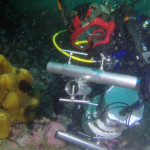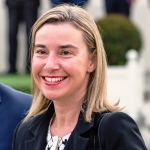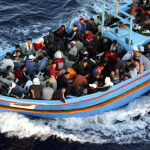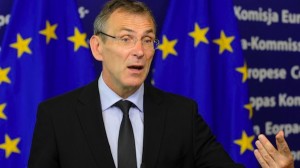The European Commissioner for Development, Andris Piebalgs, announced further support for Mali totalling EUR 615 million (following approval by the European Parliament and the Council) under the 11th European Development Fund (EDF) for 2014 to 2020. This new allocation emphasises the European Union’s determination to maintain its support for building peace and economic and social development in Mali.
The new support package will focus on government reform, food security, education and the construction of a road linking Gao and Kidal to the Algerian border, in line with the priorities drawn up by the Malian authorities in their Plan for the Sustainable Recovery of Mali 2013-2014. The new package was announced during a joint visit to the region by Commissioner Piebalgs, the Secretary-General of the United Nations, Ban Ki-moon, the Chairperson of the African Union Commission, Nkosozana Dlamini-Zuma, the President of the World Bank, Jim Yong Kim, the President of the African Development Bank, Donald Kaberuka, and the European Union’s Special Representative for the Sahel, Michel Reveyrand-de Menthon.
The Commissioner said: “Since the political and military crisis of 2012, we have seen the Malian Government’s determination to overcome instability in order to concentrate on the country’s development. The restoration of security is a vital condition for sustainable development in the region. We stand by the Malian authorities in their efforts to implement poverty reduction programmes”.
This bilateral support for Mali is part of the EUR 5 billion of aid allocated by the European Union for the Sahel (Mali, Niger, Burkina Faso, Chad, Mauritania and Senegal) for the same 2014-2020 period.
The EUR 615 million comes on top of the sums pledged at the high-level donor conference for development in Mali held in Brussels on 15 May 2013 at which the Malian authorities unveiled their Plan for the Sustainable Recovery of Mali 2013-2014.
Under the 10th EDF, which covers the 2008-2013 period, Mali has benefited from an allocation which has been raised from an initial EUR 533 million to nearly EUR 728 million. To this amount must be added EUR 34 million in thematic instruments and EUR 55 million for regional cooperation. EUR 54 million has been allocated in 2013 as humanitarian aid.
Results of humanitarian and development aid in Mali and examples of projects
Together these measures have already enabled over 304 000 inhabitants to obtain access to drinking water in the Ségou, Mopti and Kayes regions. This facility should soon be made available to an additional 450 000 or so inhabitants, i.e. 24% of the population of the Koulikoro, Sikasso and Tombouctou regions. By the end of the year, work should also recommence on the road between Niono and Timbuktu.
Project: ‘Water Supply and Sanitation Support Programme for Local Authorities’ (PACTEA 1)
This project, for an amount of EUR 30 million, has enabled over 304 000 inhabitants to obtain access to drinking water in the Ségou, Mopti and Kayes regions. The second phase (EUR 30 million) should make this facility available to an additional 450 000 or so inhabitants, i.e. 24% of the population of the Koulikoro, Sikasso and Tombouctou regions.
Response to the 2012 humanitarian crisis
ECHO (the European Commission’s Humanitarian Office) is in the process of raising its contribution for 2013 to the food aid operations of the World Food Programme (WFP) from EUR 5 million to EUR 10 million. This measure is designed to assist 674 000 people affected by the current humanitarian crisis, principally by distributing food.
Background
After the events which followed on from the Tuareg rebellion in January 2012 and the occupation of two thirds of the country by islamist groups, the EU has rethought its involvement in Mali in order to adapt its cooperation to current conditions and new requirements. This has meant inter alia contributing towards:
– promoting the rule of law and the organisation of a legitimate, transparent electoral process
– strengthening the authority and presence of the State over the whole country in order to support the redeployment of basic social services
– supporting the Malian civil authorities in their efforts to restore law and order and protect civilians
– alleviating the impact of the humanitarian crises affecting displaced persons and the regions hit by the food crisis.
-
In primo piano
 Gli Stati Uniti non sono responsabili del terrorismo...
Gli Stati Uniti non sono responsabili del terrorismo...
7 febbraio, 2017 I fondali dell'Antartide sono un mondo che non ti aspetti:...
I fondali dell'Antartide sono un mondo che non ti aspetti:...
29 febbraio, 2016 Discussing Europe with Ms Federica Mogherini
Discussing Europe with Ms Federica Mogherini
17 settembre, 2015
Articoli Recenti
 Immigrazione e Nazione
Immigrazione e Nazione
15 novembre, 2024 Filippo Tommaso Marinetti ed il movimento futurista
Filippo Tommaso Marinetti ed il movimento futurista
23 maggio, 2023 Italiani e Francesi “cugini” litigiosi per seri ma anche per futili motivi
Italiani e Francesi “cugini” litigiosi per seri ma anche per futili motivi
6 maggio, 2023 Don Antonino Collurafi da Librizzi, maestro di “broglio” a Venezia
Don Antonino Collurafi da Librizzi, maestro di “broglio” a Venezia
23 aprile, 2023 L'affare Bolo Pascià: un episodio dello spionaggio italiano della Grande guerra
L'affare Bolo Pascià: un episodio dello spionaggio italiano della Grande guerra
19 aprile, 2023
I più letti
 La Folgore intona il canto degli Arditi e la stampa italiana lo etichetta inno fascista – I vertici militari aprono un'inchiesta
La Folgore intona il canto degli Arditi e la stampa italiana lo etichetta inno fascista – I vertici militari aprono un'inchiesta
31 luglio, 2014 Il COCER sui marò: chiediamo di parlare con il Presidente del Consiglio Matteo Renzi
Il COCER sui marò: chiediamo di parlare con il Presidente del Consiglio Matteo Renzi
25 giugno, 2015 Il Ramadan (30 giorni di digiuno, secondo pilastro dell'Islam)
Il Ramadan (30 giorni di digiuno, secondo pilastro dell'Islam)
12 agosto, 2013 Vasco Rossi con il tour “Live Kom '014” a Roma e Milano
Vasco Rossi con il tour “Live Kom '014” a Roma e Milano
29 ottobre, 2013 Il segreto della Massoneria è la comunicazione
Il segreto della Massoneria è la comunicazione
12 luglio, 2017





 11 Nov 2013
11 Nov 2013
 Inviato da Clara Salpietro
Inviato da Clara Salpietro 




